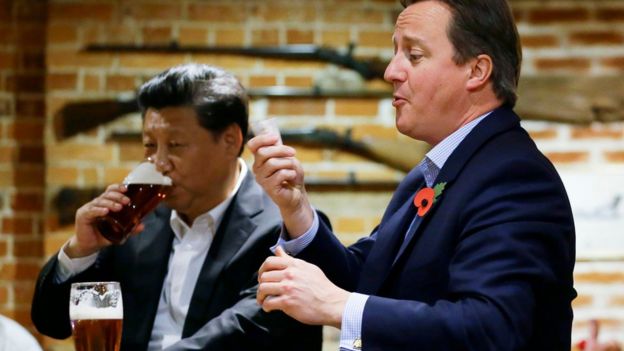by Philippa Noble
Xi Jinping is slowly becoming the most powerful Chinese President
since Mao, as well as the most popular, allowing him to make dramatic changes.
This certainly has been the cause of many great things for China, but can it
last or will we see a dictatorship return to the republic?
Xi Jinping has used his personal power to change things faster
than his direct predecessors ever could. His policy of ridding corruption has
been indiscriminate, as he vowed to crack down on both “the tigers and the
flies”. Mr Xi has also relaxed the one-child policy (implemented to control overpopulation,
which has resulted in a distortion of gender balance and lack of people at
working age to support the elderly dependants). However, it isn’t all good news;
with the dramatic tightening of media and Internet censoring, as well as continuing
to curb human rights, Mr Xi has tainted his record somewhat. Also, although out
of his control, Chinese economic growth is slowing, potentially causing social
unrest and in turn some problems for the Communist Party.
Looking into the history, however, Xi’s actions could appear ill
intended. Since Mao, China has been ruled through collective presidency –
removing the power from one person and placing it in the hands of a team of
men. This policy was successful in preventing another dictator like Mao Zedong
emerging, yet Xi Jinping is slowly tearing it apart. The bureaucracy in
collective presidency meant that any significant changes took a long time to
come to fruition. However, that is what made it so effective; with no immediate
changes being made, China could avoid any sudden rise to power from a potential
dictator in a single party state. Xi has gained popularity with the people,
enabling him to continue without any threat from the other Chinese factions. So
for all the frustration caused by slow changes in collective presidency, there
could be far greater risks from Xi Jinping removing all the safeguards for
Chinese politics.
 |
| David Cameron hosting Xi Jinping on a recent visit to the UK |
Xi Jinping’s aggregation of power is worrying. So far he has
been seen to be changing China for the better. Nevertheless, if his actions are
scrutinised, numerous parallels can be drawn to the rule of Mao and previous Chinese
emperors. His revolution against corruption could be construed as just a thinly
veiled purge of his detractors. His high profile opponents (Bo Xilai and Zhou
Yongkang) have speedily been removed with convictions for corruption – since
2013, the number of anti-corruption prosecutions has increased to over 200,000 with
99% being convicted. Mr Xi has also reinstated practices common in Mao’s era
such as self-criticism sessions for officials played out on television. Whilst he
is trying to portray has himself as the next Deng Xiaoping, leading China
through a second economic revolution, he is developing a cult of personality
that is common in most modern dictators (Hitler, Mao, Stalin). Whether his
intentions are good or not, Xi is reflecting old procedure in his new policies.
As the state visit of Xi Jinping to the UK drew to a close last
year, he disclosed that we would be the western country most open to China.
Both leaders wish for better relations between the countries – which could
potentially benefit all. China’s economy is slowing and transforming from an
investment-led economy to one that is looking to invest outside of China
(possibly the UK). There was no mention of censorship or human rights on this
visit, however, as Britain sees China as a potential investor into key UK
infrastructure projects (including our nuclear power industry). But how long is
this sustainable if Xi begins to transform into a dictator?
Now, with us entering the Year of the
Monkey, as collective presidency continues to fade and with Xi Jinping not concluding the purge of his enemies, will he make a monkey of
us all?

Comments
Post a Comment
Comments with names are more likely to be published.